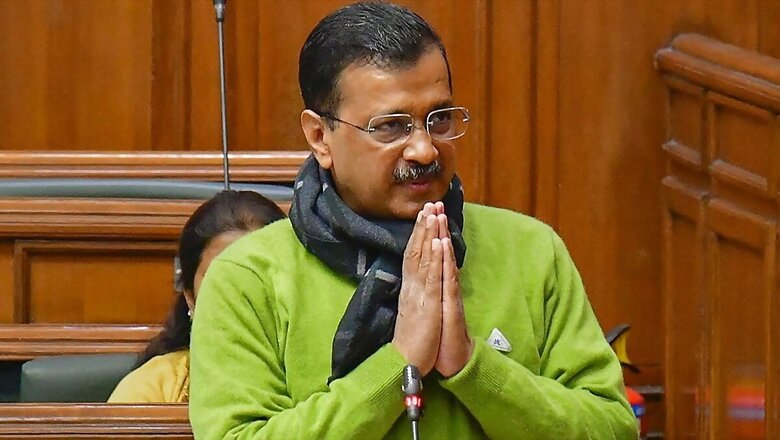
views
The Enforcement Directorate on Thursday issued the seventh summons to Delhi Chief Minister and Aam Aadmi Party chief Arvind Kejriwal and asked him to appear before it on February 26 for questioning in connection with the Delhi excise policy case.
This comes day after the Delhi CM skipped the anti-corruption agency’s sixth summons saying that the matter of their “validity” is in the Court now. “Instead of sending repeated summons, the ED should wait for the Court’s verdict,” AAP said.
In response, the federal agency had claimed that a local court prima facie held Kejriwal guilty of “disobeying” the earlier notices issued to him in this case, warranting the seventh summons.
Further, ED said that the “question in front of the court is not about the validity of the summons, rather the illegal act on part of Sh Arvind Kejriwal of intentionally disobeying the said three summons.”
Earlier on February 17, the AAP supremo told a court that he wanted to appear before it in connection with an application moved by the ED but couldn’t do so because of the budget session and floor test in the Delhi Assembly.
He further requested the court for a hearing on a later date, saying that he “will appear” in court then. Accepting his request, the Delhi Court posted next hearing for March 16.
The sixth summons to Kejriwal was sent by the ED on February 14 and it asked him to appear before it at its headquarters on February 19.
Sources in the federal agency had said that they had filed a complaint before the Court under Indian Penal Code (IPC) Section 174 against the Delhi CM for “intentionally” disobeying the first three summons issued to him.
The court has taken cognisance of the same and prima facie accepted that Kejriwal committed an offence for which he is liable to be prosecuted, the sources claimed.
DELHI EXCISE POLICY CASE
The Delhi government had implemented the excise policy in question on November 17, 2021, but scrapped it at the end of September 2022 amid allegations of corruption. According to investigating agencies, the profit margins of wholesalers were increased from five to 12 per cent under the new policy.
While agencies alleged that the new policy resulted in cartelisation and those ineligible for liquor licences were favoured for monetary benefits, the AAP-led Delhi government and Manish Sisodia have denied any wrongdoing, saying that the new policy would have led to an increase in Delhi’s revenue share.
ED had said that it wants to question the Delhi Chief Minister on the formulation of policy, meetings held before it was finalised, and allegations of bribery.



















Comments
0 comment